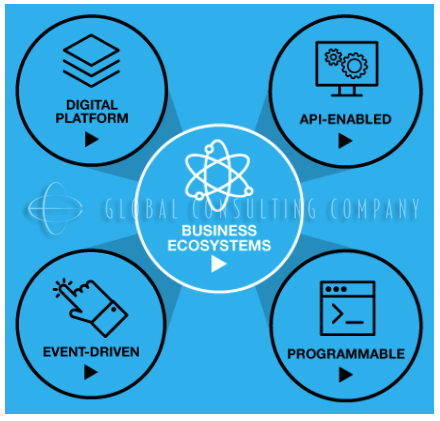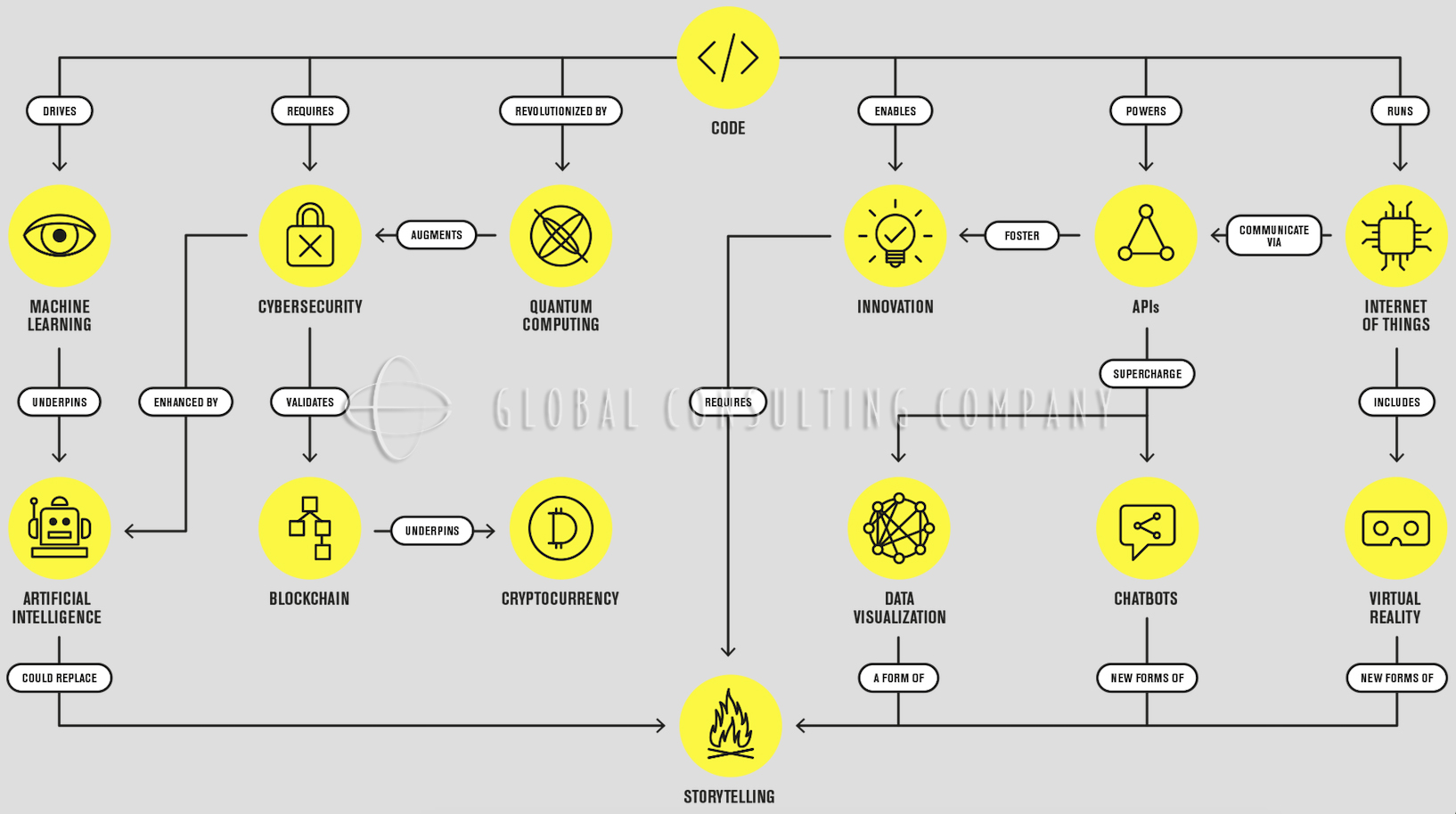Digital Platform Strategy
Digital Business Ecosystem and Platform Strategy
Global Consulting Company is a leading consultancy and advisory company. We equip business leaders with indispensable insights, advice and tools to achieve their mission-critical priorities and build the successful organizations of tomorrow.
Our unmatched combination of expert-led, practitioner-sourced and data-driven research steers clients toward the right decisions on the issues that matter most. We're trusted as an objective resource and critical partner by more than 30 allied companies and leading affiliated corporations across all major functions, in nearly every industry and enterprise size.
To learn more about how we help decision makers fuel the future of business, contact us.
Opportunities and Challenges
- Digital innovation is driving the move to business ecosystems by driving increasing interconnection, making it easy and quick to connect everything.
- Business ecosystems offer unprecedented access to the capabilities, resources and talent on a global scale that sets the stage for innovation.
- To leverage business ecosystems organizations will need a paradigm shift in perspective, away from the traditional supply – demand economic perspective.
- The shift to business ecosystems requires a change in the people, processes and technologies that underpin the organization.
What You Need to Know
There are critical mechanisms for capitalizing on business ecosystems opportunities and responding to threats, including APIs, digital platforms, events and programmable economy (including blockchain).
Digital Platforms
Digital business platforms are
- stable base of IT services,
- modular and service-oriented,
- bringing together the organization's own systems and contributions from outsourcers and "as a service" providers.
Digital platforms underpin the creation of new business models by integrating ecosystems of people, business and things.
API Enabled
Information is an Asset, that must be shared and protected
The API Economy is
- a set of business models and channels,
- based on secure access of functionality and exchange of data to an ecosystem,
- through an API, either within a company or on the Internet with business partners and customers.
Event Driven
Event driven IT is a top priority.
By 2020, achieving broad competence in event-driven IT will be a top-three priority for the majority of global enterprise CIOs.
A key distinction of a digital business is that it’s event-centric, which means it’s always sensing, always ready and always learning.
Leaders guiding a digital transformation initiative must make ‘event thinking’ the technical, organizational and cultural foundation of their strategy.
Programmable
Programmable economy is the global-scale aggregation of algorithmic businesses and decentralized autonomous organizations enabled by metacoin platforms.
- Metacoin platforms are the key technology foundation to the programmable economy.
- Consist of lightweight, distributed autonomous agents with imbued purpose via embedded rules and business logic


Ecosystem of Digitization
Every Organisation must have a Digital Platform Strategy
Not every organization should assume a leadership role in a business ecosystem; however, every organization needs a digital platform strategy. CIOs must collaborate with their business counterparts to integrate digital platform development into their technology and business strategic planning.
- Analysis
- Impacts and Recommendations
- Explore — Business ecosystem participation will affect how CIOs determine strategic and operational investments.
- Plan — Digital platform strategies require CIOs to integrate business and technology planning.
- Deliver — Business and technology opportunities and risks will significantly influence how CIOs support digital platforms.
- Evolve — As business ecosystems expand, CIOs will have to manage increasingly complex digital platform architectures
Application Programming Interfaces
Application programming interfaces open new business opportunities. However, too many CIOs make the mistake of seeing APIs as technology only, instead of basing their company's business models, digital strategies and ecosystems on them.
- Analysis
- Your (Digital) Strategy Drives Your API Program
- Tailor Your API Experiences for Your API Consumers
- Use Hackathons, but Understand Their Limits
- If You Build It, They Might Not Come
- Monetization Is Much More Than Charging for Calls
- APIs Enable Bimodal, and Bimodal Requires APIs
- APIs Are Doors into Your Data and Applications: Security Matters
- Don't Build Your Own API Management
- Modern Application Architecture Relies on APIs
- Consuming APIs Will Be More Common Than Exposing APIs
Practical Blockchain
Blockchain is evolving from a digital currency infrastructure into a platform for digital transformation. CIOs must understand its use, and whether the hype is true about how it can help with transaction costs, integration, technology readiness, business-model creation and efficiency.
- The Blockchain Revolution Promises to Touch Every Industry
- Priming the Pump: Get Your Enterprise Ready
- Blockchain's Varied Uses
- Using an Immature Technology in the Best Way Possible
- Related Priorities, Resources, Webinars, Podcasts, Peer Connect
Follow the leaders: Digital Business is event-driven
Event-driven IT could make your organization more innovative and accelerate its transformation into a digital business. Application leaders modernizing application architecture should study the business drivers in this report to create a better roadmap for moving to event-driven IT architecture.>
- Analysis
- Identify Business Problems in Your Organization that Could Be Solved With Event-Driven Architecture by Examining the Drivers of Event-Driven IT
- Digital Business Decisions
- Internet of Things
- Business and IT Agility Solutions
- Web-Scale Performance
- Modern User Experiences
- Invest in Skills and Technologies for Consolidated Support of Request- and Event-Driven IT Initiatives
- Identify Business Problems in Your Organization that Could Be Solved With Event-Driven Architecture by Examining the Drivers of Event-Driven IT



